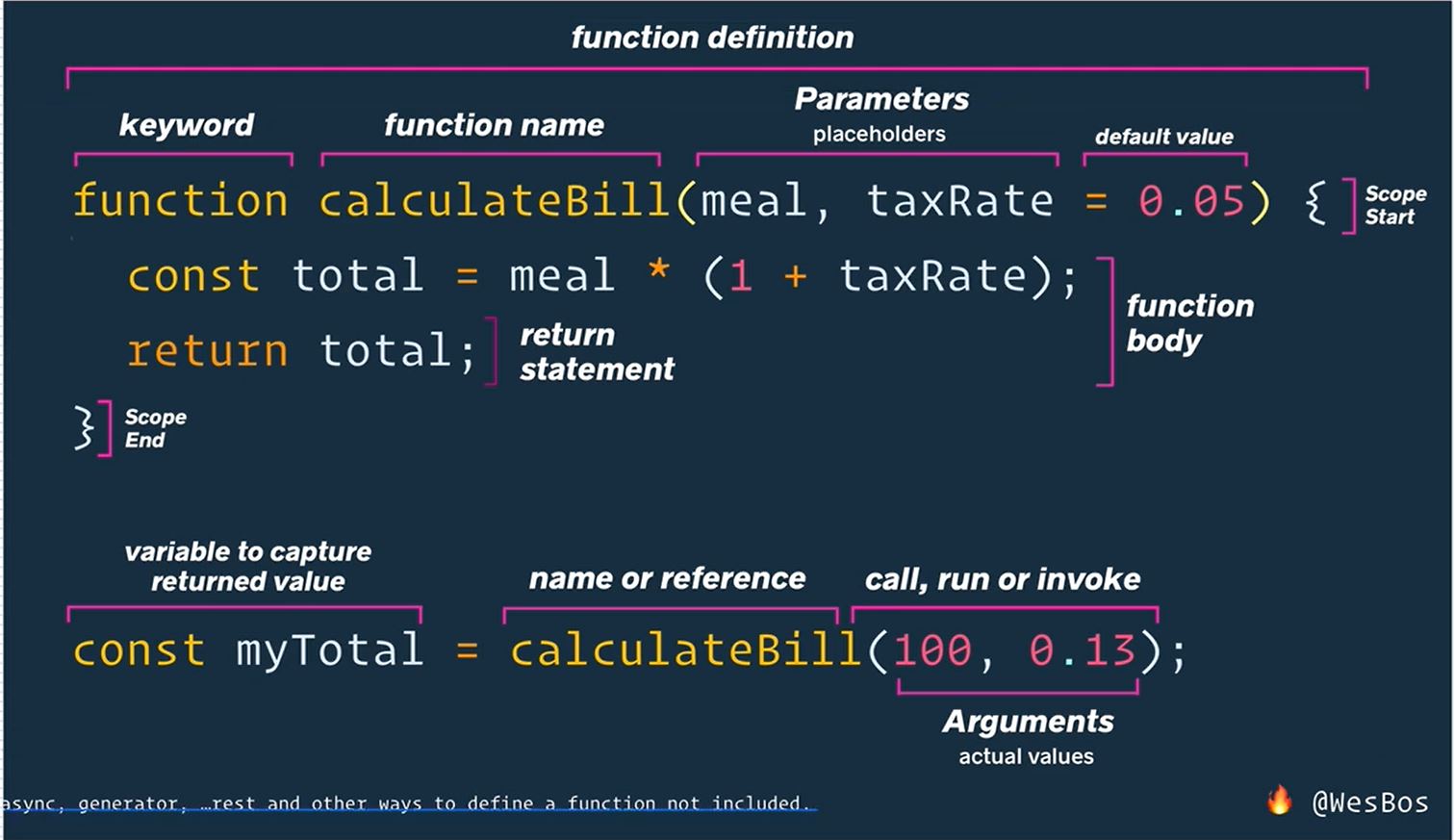-
Parameters are like placeholders for data that will be passed to a function.
-
Arguments are the actual values passed to a function while calling it
function calculateBill(billAmount, taxRate) { // here billAmount, taxRate are parameters const total = billAmount + billAmount * taxRate return total; } calculateBill(100, 0.13); // here 100, 0.13 are arguments
-
Parameters are variables local to the function; available only inside the function.
-
You can also pass variables as arguments during a function call.
-
We can also pass expressions as arguments to a function.
myTotal3 = calculateBill(20+20+30, 0.3); -
So, we can either pass direct value or variables holding value or expressions resulting in a value to a function as arguments.
-
Passing functions as arguments:
function doctorize(name) { return `Dr. ${name}`; } function yell(name) { return `HEY ${name.toUpperCase()}`; } // We can pass a function inside another yell(doctorize("Soumya")); // HEY DR. SOUMYA // Above, returned value of doctorize function is passed to yell function
-
Default values:
function yell(name = "Silly Goose") { return `HEY ${name.toUpperCase()}`; } yell("Soumya"); // HEY SOUMYA yell(); // HEY SILLY GOOSE // Above, if we don't pass any argument to yell function, then it takes the default value in function definition, // here Silly Goose, else it takes whatever we pass as argument.
-
Important gotcha:
function calculateBill(billAmount, taxRate = 0.13, tipRate = 0.15) { console.log("Running Calculate Bill!!"); const total = billAmount + billAmount * taxRate + billAmount * tipRate; return total; } // Suppose above, we want to pass the tipRate but not the taxRate and want taxRate to be default, // then the only thing we can do is: calculateBill(100, undefined, 0.66); // here the taxRate will default to 0.13 as // we have passed undefined to it and the tipRate will be 0.66 as passed
-
